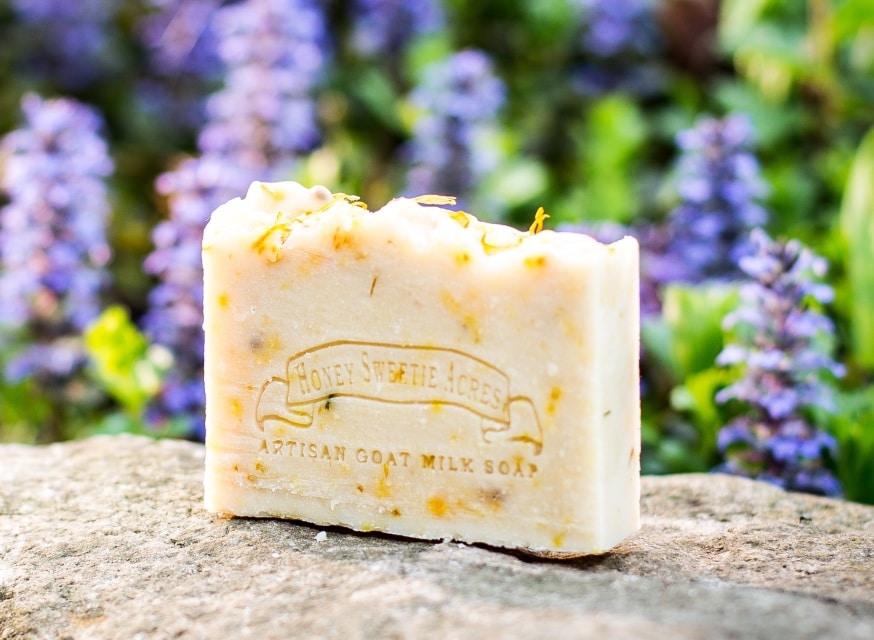Goat Milk Soap made from Calendula Flowers
Soap made from Calendula tea and/or oil infused flower petals have a long, historical background of rejuvenating properties. Hindi’s used the flower to color their fabrics, cosmetics and food. But the real treat comes from a high percentage of Flavonoids in the plant. Flavonoids are a group of plant metabolites believed to possess skin nourishing benefits through cell signaling and anti-oxidant effects.
Calendula flowers do not carry a sweet, flower like scent. If any scent is detected, it is more of a resin-like or tree sap aroma. We do not use calendula to impart a fragrance. In reality, we consider it one of our fragrance free soaps. We use calendula primarly to impart skin health & wellness. Containing great anti-inflammatory and healing properties, it has historically been used in soaps and creams for wounds, ulcers, bed sores, rashes, eczema and other conditions. It is a great moisturizer for dryness, including chapped and splitting skin.
Calendula Alergies?
Note: Extreme sensitivity to ragweed and plants like daisies, marigolds and chrysanthemums, may result in an allergic reaction using calendula. When using any herbal product, know your own body and sensitivities!
But what is even more special is the lengths we have gone to acquiring real, organically grown calendula flowers. We wanted LOCALLY grown flowers without pesticide residues.
So we approached Greener Portions Aquaponics about growing them for us. Aquaponics combines two different processes into one. First they raise the fish (aqua-culture) and use the water the fish live in to grow plants (hydro-ponics). The result is a specialized eco-system that benefits both aquatic life and plant life simultaneously.
Hydroponics and Calendula
How does it actually work? Fish waste contains ammonia. The ammonia molecule comes from the decomposition of proteins via digestion. An important element in ammonia is nitrogen. Nitrogen is an essential element in amino acids, which are the building blocks of protein. Through enzymes, the liver converts toxic ammonia to a harmless substance called urea, which is then eliminated from the body as waste. Plants are able to use ammonia as a nitrogen source for protein synthesis; hence the ammonia works as a natural fertilizer for the plants. What we have here is a symbiotic and mutually beneficial relationship that is both earth friendly and inherently organic.
This calendula flower soap will be available on-line beginning October 1st in the unscented soap section!


